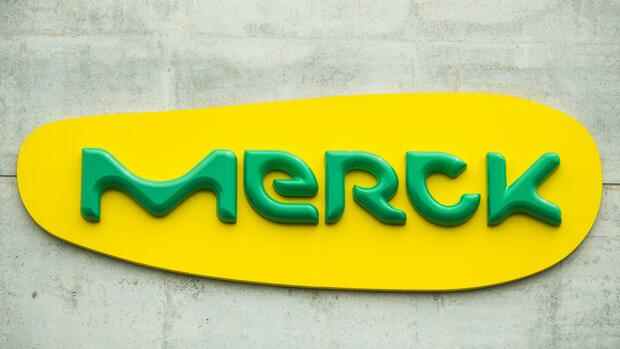The laboratory business had another record quarter.
(Photo: dpa)
Darmstadt Strong demand for biotech materials, cancer drugs and semiconductor chemicals as well as positive currency effects continue to bring double-digit growth to Merck. Sales and operating profit each increased by around twelve percent. Merck is also forecasting similar growth rates for the year as a whole, although the pandemic business is no longer providing any impetus. However, the Darmstadt group also points to increased uncertainty and volatility.
In the first quarter, the Darmstadt-based group increased its sales by 12.2 percent to almost 5.2 billion euros, with positive currency effects accounting for a good four percentage points of growth. The operating result increased by 12.5 percent to 1.17 billion euros, the net profit by 18 percent to 884 million euros. Adjusted Ebitda, Merck’s preferred earnings indicator, improved by around eight percent to 1.6 billion euros.
Merck expects sales to increase to between EUR 21.6 billion and EUR 22.8 billion in 2022 compared to EUR 19.7 billion in the previous year. Adjusted operating profit before depreciation (Ebitda) should be between 6.6 and 7.1 billion euros (after 6.1 billion euros). This corresponds to an increase of ten to 16 percent in sales and eight to 16 percent in operating profit. Merck expects organic sales growth of six to nine percent.
This is absolutely in line with the previous, not yet specified forecast from the beginning of March, emphasized company boss Belén Garijo. At that time, the Merck management had forecast “strong” organic growth. Garijo also confirmed the medium-term growth target of EUR 25 billion in sales by 2025. “We operate in a complex environment from a position of strength,” says Garijo.
Top jobs of the day
Find the best jobs now and
be notified by email.
Overall, the quarterly figures and the group’s forecast are in line with analysts’ expectations. Nevertheless, Merck shares fell another three percent on Thursday morning after having lost around a quarter of their value since the beginning of the year.
Merck is facing a headwind from rising raw material costs and the lockdown measures in China, where the group has a strong presence, especially with its electronics chemicals business. The annual forecast is based on the assumption of a short-term, locally limited lockdown with easing in the near future.
Life science remains a growth engine
In the first quarter, the lockdowns hardly affected Merck’s business in China, emphasizes Garijos. However, heavier burdens are expected for the production and delivery of products in the second quarter. In addition, the Merck boss assumes that these effects can be largely compensated for in the course of the year.
The Life Science division continues to be Merck’s strongest growth driver. The sales of the division, which includes Merck’s business with laboratory reagents and precursors for biotech and pharmaceutical production, rose by 15 percent to 2.4 billion euros. Garijo sees the fact that the division continues to grow strongly as an important success, although business in connection with the Covid pandemic did not bring any growth for the first time, but only stagnated.
>> Read about this: Biotech boom and few risks: Merck is growing into new dimensions
“Life Science’s outstanding quarter is proof that our core business can achieve impressive growth independently of the Covid-19-related business,” said the Merck boss. For the year as a whole, Merck expects a decline to around EUR 700 million compared to EUR 1.15 billion in the previous year.
In the healthcare (pharmaceuticals) division, the main growth driver was the cancer drug Bavencio, which received approval for the first-line treatment of bladder cancer last year. Sales of the drug more than doubled in the first quarter. Sales of multiple sclerosis drug Mavenclad improved by a quarter, while a number of older pharmaceutical products rose only moderately or fell. Overall, the division increased by almost a tenth to 1.8 billion euros.
In the Electronics division, which includes Merck’s specialty chemicals business, further sales losses in liquid crystals were more than offset by strong organic growth in semiconductor materials and particularly strong currency effects. The division was therefore able to increase sales by eleven percent to almost one billion euros.
More: The prospect of a new Roche lung cancer therapy is fading
